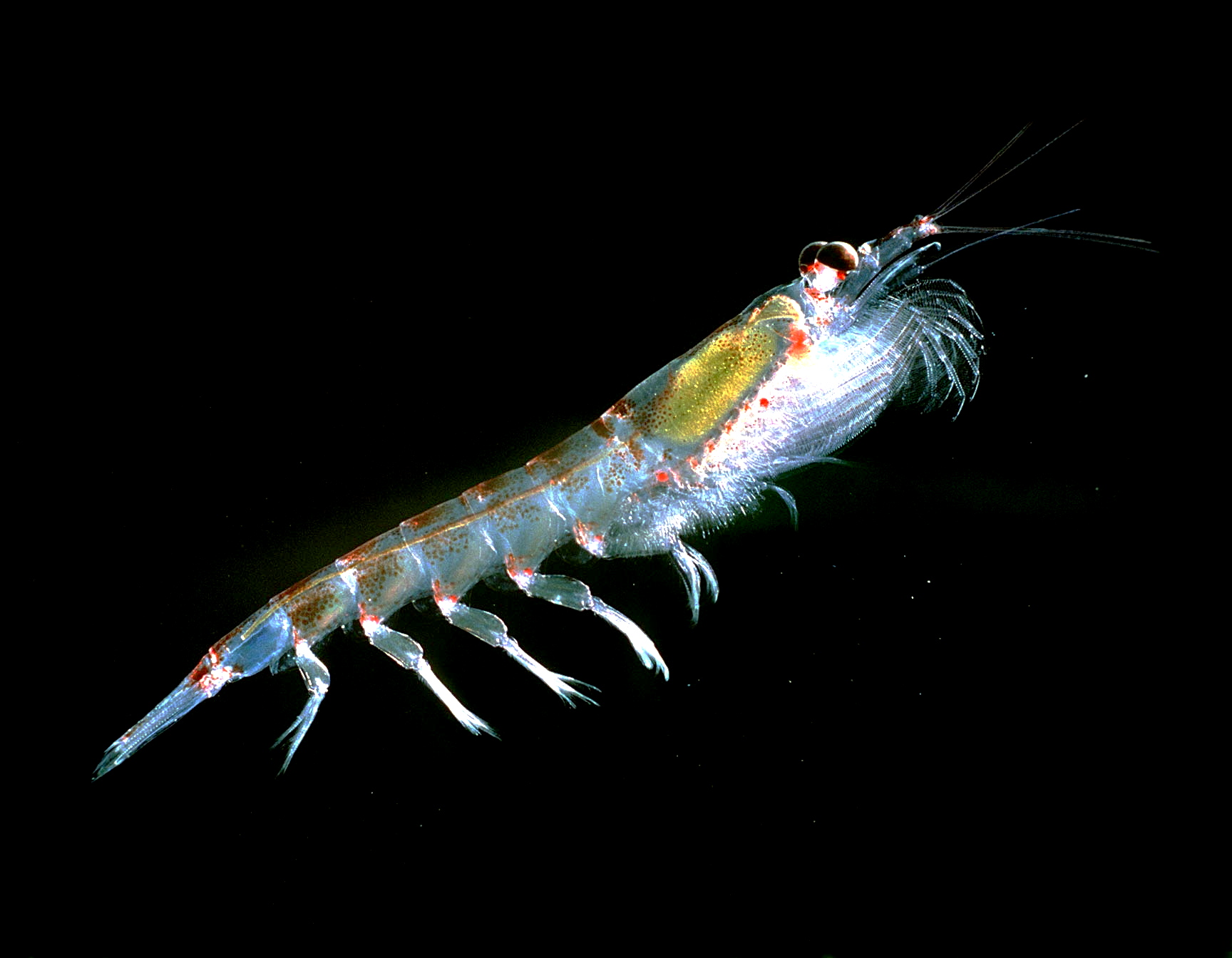 Antarctic Krill (pictured) is a keystone species in Antarctica and now have a 'World Day' in honour of their importance to the Southern Ocean
Antarctic Krill (pictured) is a keystone species in Antarctica and now have a 'World Day' in honour of their importance to the Southern Ocean
Today, 11 August, marks World Krill Day, and though they are small, these crustaceans deserve to be celebrated enormously as one of the unsung heroes of the planet.
Krill are a key species in the Antarctic and an important food source for many species of marine life in the Southern Ocean, including albatrosses and other ACAP-listed species.
Threats to Antarctic Krill and the marine life dependent on it include: rising sea temperatures which are impacting the distribution of krill in the Antarctic, forcing populations southward to colder waters, and an increased interest in krill resources from commercial fisheries.
Incidental deaths of albatrosses and petrels also occur in krill trawl fisheries when birds may collide with cables and become injured, or be dragged underwater when their wings become entangled around the warp; birds can also become entangled in nets during shooting and hauling.
The re-establishment of the Working Group on Incidental Mortality Associated with Fishing (WG-IMAF) at last year’s CCAMLR meeting in Tasmania was welcomed by the Agreement. The WG-IMAF was originally created in response to concerns over the decline in albatross populations, and the potential for this to be exacerbated by interactions with CCAMLR fisheries and was reconvened in 2022 to review mitigation of incidental mortality in the krill trawl fishery.
ACAP has been extended an ongoing invitation for an ACAP expert to participate in the WG-IMAF and will be in attendance at this year’s CCAMLR meeting taking place in October this year.
The establishment of Marine Protected Areas (MPAs) in Antarctic waters has been a decade-long pursuit for CCAMLR and is urged by Rod Downie, Chief Polar Adviser at WWF-UK, who said: "[But] changes in krill distribution and a growing interest from the fishing industry necessitates rapid action towards a network of marine protected areas incorporating krill habitat to support biodiversity and climate stability. We need to work with nature, not against it, in the fight against climate change.”
11 August 2023

 English
English  Français
Français  Español
Español